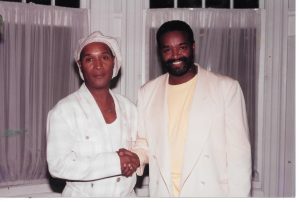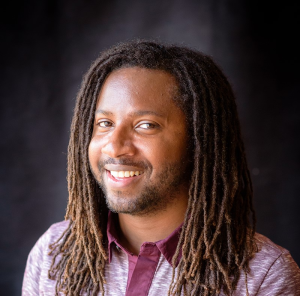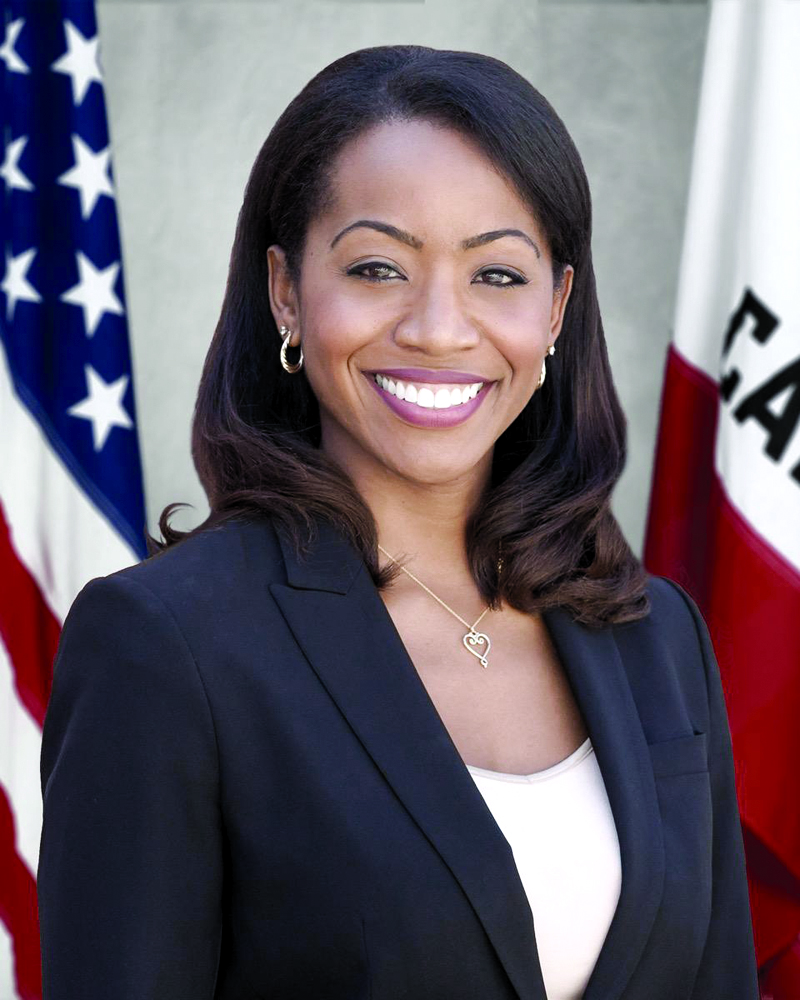Black Voice News
Democrats in California have all the power—and much of the turmoil
BLACK VOICE NEWS — You might think a political party racked by scandal, facing three lawsuits and riven with infighting would be in a bad spot politically. But, according to plenty of close observers, the California Democratic Party is doing just fine.
You might think a political party racked by scandal, facing three lawsuits and riven with infighting would be in a bad spot politically.
But, according to plenty of close observers, the California Democratic Party is doing just fine.
Fresh off a historic electoral triumph in the 2018 midterms, the party now dominates both chambers of the state Legislature while maintaining a decade-long lock on every statewide elected office. At the end of this month, California Democrats will hold their annual convention in San Francisco, hosting at least 14 presidential contenders.
While in the national limelight, they also have to hold a special election for party chair—the very existence of which speaks to the party’s internal turmoil. Earlier this year, the former chair, Eric Bauman, was forced to step down over accusations of sexual harassment and assault, which he denies. A number of former staff members and party activists have sued.
Accusations of a hostile work environment only compound what was already an acrimonious climate within the party. In the last few months, critics of the party’s interim leader have accused her of “retaliation” and of stacking the staff with her allies. One group of delegates have accused another of trading in “anti-Semitic tropes.”
In short, the party will arrive in San Francisco with a lot of baggage.
“I hope the party gets its act together. The convention will elect a new chair and I hope that they clean house,” said Garry South, a Democratic political consultant. “But in terms of this being any kind of a significant factor in statewide politics, or in the standing of the Democratic Party itself in California, it is, in a sense, less important than what I had for breakfast this morning.”
If true, that’s a remarkable contrast to the state’s Republican Party, which holds virtually no power in Sacramento and whose once mighty House delegation could now easily fit in a minivan. Shackled in the mind of many voters to President Donald Trump, whose approval rating in California sits at around 30%, the party has struggled to appeal to the state’s most rapidly growing demographic groups. That seems to have placed a cap on GOP electoral success in the state, no matter how well-functioning its party operation.
California Democrats rest on the flip side of that coin. Buoyed by demographic tailwinds and a deeply unpopular president, to many, the party can do no wrong—even when it seems to be doing nothing but wrong.
“California is a solid blue state,” said Drexel Heard, a Democratic delegate. “It will take a little more than internal party politics to shake that.”
The Democrats’ Tale of Two Parties came into focus last November. In the same month, the party rode to a commanding victory at the polls and Bauman was forced to resign.
As first reported by the Los Angeles Times, the former labor leader from Los Angeles was accused of making “crude sexual comments” and engaging in intimidation and “unwanted touching.”
Since then, three lawsuits have been filed against Bauman and the party. The allegations include sexual harassment, verbal abuse, wrongful termination and sexual assault.
The divergence between the party’s electoral success and its interior strife is so stark, a relatively simple question—”what is the state of the California Democratic Party?”—tends to elicit an awkward silence or a strained chuckle.
“There’s much to celebrate and to be excited about,” said Rusty Hicks, president of the Los Angeles County Federation of Labor and one of seven people bidding to replace Bauman at this month’s convention. “At the same time, I think there’s some very serious issues that we should address.”
But, he added: “If not addressed, and Democrats don’t feel safe in engaging with their party, then it could absolutely impact both the energy, the activism and the ability to have real capacity throughout the state.”
The allegations made in the various lawsuits indicate that those issues go beyond Bauman. They depict a boozy workplace environment that allowed harassment, disparagement and assault of its own employes to go on unchecked or unnoticed. Amid all of this, questions have arisen about whether the party that claims to represent inclusion, tolerance and the spirit of the #MeToo movement lacks credibility with voters and donors.
“Of course it wasn’t just Eric,” said Daraka Larimore-Hall, the party’s current vice chair who is also running for the top seat. “The dysfunction is that someone was able to behave that way and get away with it for far too long,”
It isn’t as though the party was trouble-free before the allegations against Bauman rose to the surface.
Following a presidential primary that cleft Hillary Clinton supporters from backers of Bernie Sanders, the state party’s 2017 leadership race went narrowly and contentiously to Bauman. The candidate who came in second, Bay Area progressive activist Kimberly Ellis, cried foul, questioning the legitimacy of the outcome. Many delegates left the convention harboring resentments. Now Ellis is running for chair again.
There are more recent dust ups. Orange County delegates called for Iyad Afalqa, the chair of the party’s Arab-American caucus, to be disciplined for a Facebook post they claimed was appealing to anti-Semitic tropes.
Then last month, Alex Gallardo-Rooker, the acting chair of the state party, kicked a few critics off of a key committee, including Larimore-Hall. Those demoted called it “retaliation;” a party spokesman called that characterization “silly.”
The backbiting was bad before the fractious 2017 convention, but “it feels worse than the last time,” said Heard, who represents part of the San Fernando Valley on the party’s executive board. “It just feels more vicious.”
Still it’s not clear that any of this will imperil the party’s electoral prospects.
“I don’t mean to sound disrespectful,” said South, the consultant. “But if point-two percent of the California population is even aware of who Eric Bauman was or what happened to him, I would be shocked.”
Jackie Moreau agrees. Until recently, she was among that 99.8 percent. Just elected to the party’s executive board, she says the party needs to improve coordination with local activists. But did she worry that the party strife would turn off voters?
“You mean, like regular voters? Regular people with everyday lives that don’t think about party things?” she said. “No.”
But the party’s reputation may matter more with contributors, said RL Miller, chair of the party’s environmental caucus.
“Electorally, we’re in very good shape,” she said. “We simply need to convince donors that the party is healthy despite the dysfunction.”
Thus far, it doesn’t look like the party’s donor base needs much reassuring.
Though the new round of lawsuits are still fresh, the party has received nearly $8 million in contributions since the beginning of the year. That’s slightly less than the party’s haul during the same period in 2017—the last non-election year—but that was a historic high after Trump’s stunning win.
The financial importance of the party is somewhat limited anyway, said Don Perata, former top Democrat in the state Senate. Under California campaign finance law, the party channels much of the campaign cash spent in the state, but elected politicians direct a lot of the raising and spending, he said. And with the rise of well-financed progressive political groups such as Indivisible and NextGen outside the party, the organization’s political clout may no longer carry so much weight.
“The persuasiveness of the California Democratic endorsement has lost a lot of its luster over the last decade or two,” said Perata.
But as presidential candidates and the national media descend on San Francisco, the party will have things to consider beyond self-analysis.
On Saturday June 1, 14 presidential candidates are slated to speak before the delegates: New Jersey Sen. Cory Booker, South Bend, Indiana Mayor Pete Buttigieg, Texas Rep. Julián Castro, former Maryland Rep. John Delaney, Hawaii Rep. Tulsi Gabbard, New York Sen. Kirsten Gillibrand California Sen. Kamala Harris, former Colorado Gov. John Hickenlooper, Washington Gov. Jay Inslee, Minnesota Sen. Amy Klobuchar, former Texas Rep. Beto O’Rourke, Vermont Sen. Bernie Sanders, California Rep. Eric Swalwell and Massachusetts Sen. Elizabeth Warren.
“It’s hard to say what’s going to overshadow what: presidential candidates speaking or the chair’s race,” said Andrew Acosta, a Democratic consultant. “The delegates might get more excited about all the other stuff going on than this race for the party chair.”
For average voters at home, the latest soundbite from Sen. Kamala Harris or Pete Buttigieg might be all they hear—if they hear anything at all.
The author wrote this for CALmatters, a public interest journalism venture committed to explaining how California’s Capitol works and why it matters.
This article originally appeared in Black Voice News.
African American News & Issues
Geoffrey’s Inner Circle Not included in Funding Support
We will ultimately be successful in our efforts to reach the goal of our fundraising campaign but will also ensure that the native Oakland community of African Americans will receive equal assistance and opportunity in this city.

Publisher’s note by Paul Cobb: Several years ago when writer MarvinX Jackmon and I asked Mayor Libby Schaaf and Councilmember Lynette Gibson McElhaney to name the downtown business district in honor of the historic Black achievements, Black Newspaper, Black Businesses, Art Galleries, Black Museum, Government Buildings, Arts and Entertainment venues, I asked the Mayor to make sure that Geoffrey’s Inner Circle would receive the same financial support and grants that the Fox Theatre and the Oakland Auditorium were receiving. I reminded her how I as the former director of OCCUR, had led a group of historical preservationists to save the Fox from a demolition wrecking ball, she said she liked the Malonga Arts Complex instead. We at the Oakland Post support Geoffrey’s Go Fund Me appeal https://gofund.me/b2541419 with a $1,000.00 donation and my wife Gay Plair Cobb and I urge others to join us either in-kind or with at least the donation of a “Tubman” ($20.00 bill). Geoffrey’s ironically was the original home of Oakland’s white power structure. (We have published a photo below of how those White wealthy leaders often met and entertained themselves by adorning themselves in Black Face at the former Athenian Nile Club ( now Geoffrey’s). And now that the same establishment is represented by the face of a Black man, his establishment is being whitewashed with neglect.
The Post has asked Mr. Pete to give his own opinion below.
Paul Mooney appeared at Geoffrey’s Inner Circle some 30 or more times over the years. His platform and message were always used to shed a light on the grave racial disparity and economic injustice that has, whether acknowledged or not, plagued this country since its inception. This racially aggressive ideology has also had its tangles in our dear city of Oakland. A disparity study illustrated by Dr. Eleanor Ramsey highlighted the glaring absence of African Americans in the city’s landscape of budgeted allotments for professional services, labor construction and city development.

Former entertainer Paul Mooney often performed at Geoffrey’s urging America to face-up to White racism
While I applaud Yoshi’s Oakland for reaching their goal in their most recent Go Fund Me efforts, it should be noted that Yoshi’s also received $5 million dollars in assistance from both the City and Port of Oakland to open a jazz entertainment venue at Jack London Square. Geoffrey’s Inner Circle, a live entertainment venue that began at Jack London Square, has been operating for 30 years. This offer was not extended to expand GIC or renovate, nor was it offered to any other Black Owned Business in the entertainment genre in Oakland.
The Fox Oakland was $50 million dollars over budget for its renovation project and most recently left the City of Oakland with a $78 million cost overrun.
When an African American Development Firm entered a bid on the Oakland Auditorium/ Kaiser Center, the city gave a white developer the contract and $12 million dollars in naming rights. This deal in its origin should not have had any monetary exchange whatsoever, naming rights included. The aforementioned developer has additionally secured a 99-year lease that will cost him a hefty $1 dollar. He will also receive tax credits to the tune of a $20-$40-million-dollars in subsidies. Go fund me has a different ring to it if you are non-black and vending with the City of Oakland it seems.
We will ultimately be successful in our efforts to reach the goal of our fundraising campaign but will also ensure that the native Oakland community of African Americans will receive equal assistance and opportunity in this city.
Thank you in advance for your support!
Geoffrey Pete
GoFundMe
Bay Area
Holy Names University Celebrates New Teachers Completing Credentials
“I know very deeply what it means to be a teacher at any time but especially this past year. We wanted to do something special, and maybe this is starting a trend, to acknowledge all of our credential program completers.”

Holy Names University’s School of Education held a Zoom celebration at the end of the school year on May 28 to recognize eight new teachers who completed their teaching credentials, successfully finishing their rigorous training in the midst of an extremely challenging pandemic year.
The credential completers were honored by Dr. Kimberly Mayfield, dean of the School of Education, who emphasized the humanistic and nurturing approach to teaching that is the hallmark of Holy Names.
Reflecting on the principles that motivate the HNU staff, she said, “We train our candidates to be effective no matter what the setting is. Although this (year’s conditions) were unique, our candidates were expertly prepared for it.”
“I know very deeply what it means to be a teacher at any time but especially this past year. We wanted to do something special, and maybe this is starting a trend, to acknowledge all of our credential program completers.”
Mayfield explained that education and Oakland schools are a profound part of who she is. She is herself a former Oakland teacher; her mother was an Oakland teacher for many years; and her husband is currently an Oakland teacher.
“My hope and my charge for our candidates is not only to deliver the kind of education you’ve been trained to do but to really be sure that your classrooms are safe places for all students at your school,” Mayfield continued.
“When there are students who seem to be outliers and maybe don’t fit the picture of the school at large, that student fits the picture of success for you as a HNU graduate. Your classrooms become the safe places for all students, not just the students that are in your class or on your (rolls). That is the ethic of care that we’ve imparted.
“We are coming together in love and we want to recognize the good work that our HNU candidates have done.
She said that the Holy Names teachers are exceptional people. “When we do recruitment events, we always say we aren’t just training teachers to be teachers, we’re training teachers to be effective with our own children. When we look at who we want in the program, we are looking for candidates through those eyes. It’s a higher standard. Our relationship with you is forever.”
The eight Holy Names credential completers are:
- Todd Brewer, who is completing a special education credential. He teaches 8th grade at Impact Academy;

Todd Brewer
- Mason Brown, who is completing his single subject in science. He teaches physics for 10th, 11th and 12th graders at East Bay Innovation Academy;

Mason Brown
- Angela Calderon, who is completing her special education credential. She has been teaching special education at Richmond High School;

Angela Calderon
- Jaron Epstein, who is completing a special education credential. He has been teaching 6th-8th grade in a special day class at West Oakland Middle School;

Jaron Epstein
- Alexander Niuatoa, who is earning a single subject physical education credential. He teaches 7th and 8th graders at Winton Middle School and 10th grade at Hayward High School.

Alexander Niuatoa
- Erica Nurse, who is receiving her multiple subjects credential. She has been teaching second grade at Tolenas Elementary School in Fairfield and gives private music instruction in Vallejo.

Erica Nurse
- Shazmine Randle, who is earning a special education credential. She teaches 6th through 8th graders at Creekside Middle School.

Shazmine Randle
- Mariya Snazina is earning a world languages credential. She teaches French at Castro Valley High School.

Mariya Snazina
Each of the credential completers who attended the celebration will receive a $200 gift card, courtesy of a donation by the Teel Family Foundation, to help them buy supplies for their classrooms for the new school year.
Mayfield ended the ceremony by remembering the legacy of “really great educators who have gone before you: Dr. Fred Ellis, Margie Mayfield and Sylvester Hodges.”
“I want you to know that their energy is with you and supporting you as you go out and do really great work,” she said.
Black Voice News
BOE Member Malia Cohen Raises Red Flag on Bank-Breaking Prop 19 Tax Costs
“The challenge is that it was voted upon and the election has been certified. So, it’s the law,” Cohen said during a virtual media news briefing with reporters from across the state on January 29 organized by California Black Media.

Malia M. Cohen, the only African American member of the California Board of Equalization (BOE), has some critical concerns about the cost homeowners will have to bear because of Proposition 19, a constitutional amendment that took effect on Dec. 16, 2020.
Cohen, who represents 10 million Californians in 23 counties on the board, is concerned with how Prop. 19 will affect Black and other minority homeowners across California. The BOE is the commission responsible for implementing the law.
“The challenge is that it was voted upon and the election has been certified. So, it’s the law,” Cohen said during a virtual media news briefing with reporters from across the state on January 29 organized by California Black Media.
In her commentary, Cohen discussed the ways the law will impact all property owners.
“It not only affects our respective Black communities,” she told the reporters. “It affects all homeowners and property owners in the state of California. When people wake up there is going to be a massive coalition (to fight it) — possibly an uprising. People need to know what the real deal is.”
Cohen said she is planning other events similar to the news briefing she had with CBM. There, residents of California will begin to hear about “the first steps” they can take to become educated about how Prop.19 will hit their bottom lines. This is something she feels was not adequately explained to voters when the referendum was placed on the ballot last November.
On Nov. 3, 2020, California voters approved Prop. 19, the “Home Protection for Seniors, Severely Disabled, Families, and Victims of Wildfire or Natural Disasters Act.”
Although Prop. 19 was enacted in December, Cohen warns that a critical part of the legislation will take effect on February 16. Until that date, the state currently allows tax breaks for parent-child transfers. When parents give or sell real property to their children (or perhaps, grandchildren), that heir continues to pay property taxes at the same rate assessed on the home value as the parent.
After February 16, Prop. 19 will eradicate the parent-child exclusion. Then, parents would still be able to transfer their house to a child, and the child may keep the parent’s assessed value. But the Prop. 19 law has added one critical condition: the child must move into the residence and make the property his or her own primary residence. If not, the property will be reassessed at what the current tax cost is for the home at that time.
Cohen discussed the immediate property tax implications and how it might impede property owners’ intentions to create generational wealth by transferring their personal residence and other property they own to their children as part of their estate planning.
BOE Tax Counsel Richard Moon also participated in the briefing.
“What is required is that a child moving into the home must file a homeowner exemption and that needs to be done within a year of the transfer date,” Moon said. “The child has one year to move into the family home and maintain that family home in order to keep the exclusion. But if they move out after three years, the property would be assessed at that point.”
Rates of Black homeownership in California and across the country are still far below that of Whites and other minorities. Critics of the law say the fact that Prop. 19 could set up even more barriers to African Americans owning homes – and straddle struggling families with additional financial burdens – is problematic. About 2.2 million Black people reside in California, around 5.5% of the state’s population. According to the U.S. Census Bureau, the rate of white American homeownership is over 73%, while that of African Americans stands at 41%, Black Enterprise magazine reported in 2019.
According to data compiled by Lending Tree, the country’s leading online home loan marketplace, Los Angeles is one of the cities with the highest percentage of Black homeowners. Utah’s Salt Lake City, Texas’ San Antonio, Oregon’s Portland, and Northern California’s San Jose are also included on that list.
African Americans primarily generate wealth through homeownership and home inheritances, according to data included in the Urban Institute’s “2019 Black Homeownership Gap: Research Trends and Why Growing Gap Matters” report.
“Homeownership is currently the largest single source of wealth-building” among the Black population, the study stated. Between 2005 and 2008, over 240,000 African Americans lost their homes to foreclosure according to the Center for Responsible Lending.
“The financial crisis triggered a massive destruction of wealth for African Americans,” Alanna McCargo, co-director of the Urban Institute’s Housing Finance Policy Center told the Washington Post in 2019. “Wealth is inextricably linked to housing, and that wealth gap is evident in figures for Black-owned property in this country.”
The law, as it is written, would exclude from the term “purchase” and the phrase “change in ownership” for purposes of determining the “full cash value” of property in the purchase or transfer of a family home or family farm, for example.
Hardy Brown, Publisher Emeritus of the Black Voice News in Riverside says some of the spirit of Prop. 19 may have been positive. The state intended to provide financial cover for the mostly white Californians living in fire- and flood-prone parts of the state in the event disaster happens. But what it ends up doing, he argues, is decimate the wealth of Blacks and other minorities.
“It doesn’t help,” said Brown. “It might make a quick buck for campaign contributors or help the state to be a good neighbor to some people, but severely harms others in the process. What it really ends up doing is putting another law on the necks of Black people in the state of California. It will choke the breath right out of us.”
Under its constitutional mandate, the BOE oversees the assessment practices of the state’s 58 county assessors, who are charged with establishing values for approximately 13.6 million properties each year.
“We are not talking about $25 million palaces in Malibu. We are talking about humble homes. Middle-class homes,” Cohen said. “I live in the Bay View community (of San Francisco). We’re talking about Baldwin Hills of Los Angeles or Encanto in San Diego and other communities throughout California. Homes that were purchased for $100,000 decades ago that now have a market value of over $1 million. These homes were paid for through hard work and could be potentially lost.”
-

 Activism4 weeks ago
Activism4 weeks agoOakland Post: Week of March 27 – April 2, 2024
-

 #NNPA BlackPress4 weeks ago
#NNPA BlackPress4 weeks agoCOMMENTARY: D.C. Crime Bill Fails to Address Root Causes of Violence and Incarceration
-

 #NNPA BlackPress4 weeks ago
#NNPA BlackPress4 weeks agoFrom Raids to Revelations: The Dark Turn in Sean ‘Diddy’ Combs’ Saga
-

 #NNPA BlackPress4 weeks ago
#NNPA BlackPress4 weeks agoCOMMENTARY: Lady Day and The Lights!
-

 #NNPA BlackPress4 weeks ago
#NNPA BlackPress4 weeks agoMayor, City Council President React to May 31 Closing of Birmingham-Southern College
-

 #NNPA BlackPress4 weeks ago
#NNPA BlackPress4 weeks agoBaltimore Key Bridge Catastrophe: A City’s Heartbreak and a Nation’s Alarm
-

 #NNPA BlackPress4 weeks ago
#NNPA BlackPress4 weeks agoBaltimore’s Key Bridge Struck by Ship, Collapses into Water
-

 #NNPA BlackPress4 weeks ago
#NNPA BlackPress4 weeks agoBeloved Actor and Activist Louis Cameron Gossett Jr. Dies at 87

















































1 Comment